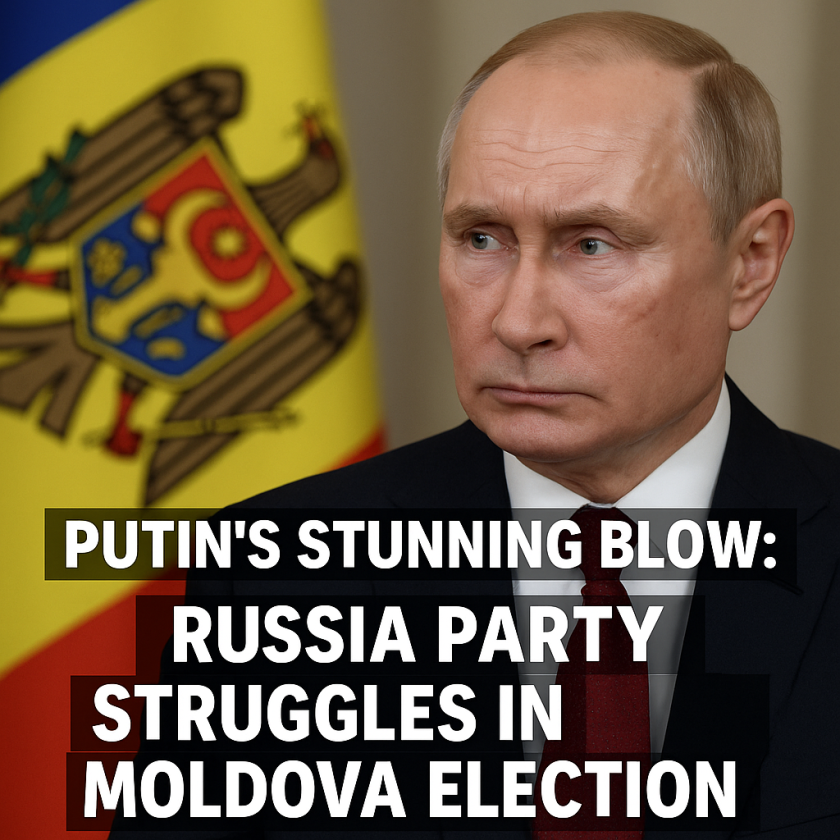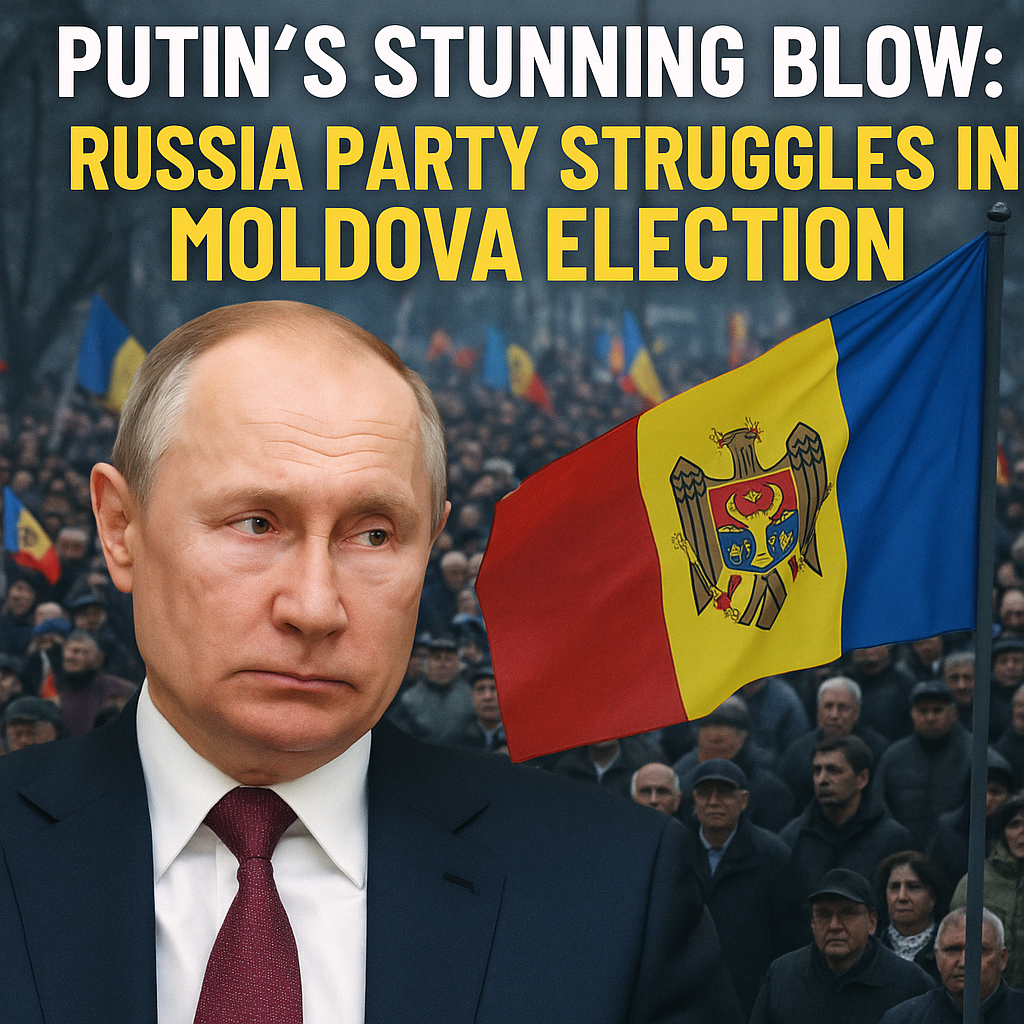Putin’s Stunning Blow: Russia Party Struggles in Moldova Election
Putin’s Stunning Blow: Russia Party Struggles in Moldova Election
Putin’s influence continues to be challenged as recent elections in Moldova reveal significant setbacks for Russia-aligned political factions. This outcome not only underscores shifting allegiances within the Moldovan electorate but also reflects broader geopolitical dynamics involving Russia and the West.
A Shift Towards Europe

In the parliamentary elections held in Moldova, the ruling pro-European party, the Action and Solidarity Party (PAS), has taken the lead, showcasing a strong preference among Moldovan citizens for closer ties with Europe. According to reports from both Sky News and Al Jazeera, PAS secured approximately 47% of the vote, effectively outpacing the opposition, which is supported by the Kremlin, including the Party of Socialists (PSRM) and the Shor Party.
This electoral result indicates a clear yearning among the electorate for integration with the European Union, illustrating a decisive move away from Russian influence. As Moldova grapples with economic challenges, particularly those intensified by the ongoing war in Ukraine, many voters see alignment with Europe as an opportunity for support and development.
Challenges Faced by Russian-Aligned Parties
The struggles of the pro-Russian parties in Moldova can be attributed to several interconnected factors. First and foremost is the ongoing war in Ukraine, which has raised serious concerns about Russian intentions in the region. The invasion has created a palpable sense of insecurity that affects voters’ perceptions about the benefits of aligning with Moscow. Reports indicate that voters perceive the pro-European stance of PAS as a safer and more prosperous choice in light of recent geopolitical upheavals.
Additionally, anti-corruption measures implemented by the ruling party resonate with citizens fed up with past governmental corruption, predominantly associated with pro-Russian leadership. Political analysts suggest that the fears of economic instability, exacerbated by reliance on Russian energy, have led many Moldovans to reconsider their political loyalties.
Moreover, the misuse of state resources by the Russian-aligned opposition during the campaign process has further eroded their credibility. While the PSRM party blamed the ruling PAS for alleged political repression, the electorate seemed to favor accountability and transparency instead of maintaining the status quo.
Geopolitical Implications
The electoral outcomes in Moldova carry significant ramifications beyond its borders. The shift towards a pro-European government may embolden Western influence in Eastern Europe, potentially serving as a model for other post-Soviet states grappling with similar dilemmas between East and West.
For the Kremlin, these electoral failures may be interpreted as a direct challenge to Putin’s long-term strategy of maintaining influence in former Soviet territories. The loss of ground in Moldova highlights the constraints on Russia’s ability to project power abroad, particularly as European nations heighten support for Moldova amid its aspirations for EU membership.
In light of these developments, experts caution that while the electoral results signal a rejection of pro-Russian sentiments, the political landscape remains fluid. Moldova still faces pressing issues such as energy dependence, economic instability, and internal divisions that could threaten the sustainability of a pro-European trajectory.
Looking Forward: Uncertainties and Opportunities
While the outcomes of the Moldovan elections present a clear preference for pro-European policies, uncertainties linger regarding the durability of this shift. The PAS’s ability to manage the complexities of governance amid economic challenges will be critical in solidifying its position in Moldovan politics.
Furthermore, as experts weigh the implications of this electoral outcome, there exists a cautious optimism for Moldova’s future. Strengthening ties with Europe may provide not only immediate support but also long-term benefits in economic and political stabilization.
In conclusion, the struggles faced by pro-Russian parties in the recent Moldovan elections signify more than just electoral defeat; they illustrate a transformational moment for the country. As Moldova forges its path towards Europe, the nation remains a focal point for understanding the evolving dynamics in Eastern Europe and the broader geopolitical landscape involving Russia and the West.




































